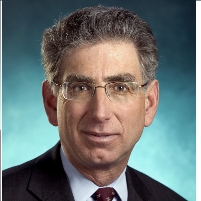Panel Chosen to Investigate Causes of Financial Meltdown; Will Obama Cooperate?
Saturday, July 18, 2009
 Phil Angelides
Phil Angelides
Two longtime California politicians have been selected to lead the government’s investigation into the causes of the economic crisis that struck the nation last year. Chairing the Financial Crisis Inquiry Commission will be Phil Angelides, former state treasurer, gubernatorial candidate, and one-time head of the California Democratic Party. The panel’s No. 2 will be Bill Thomas, former Republican congressman from Bakersfield, who once chaired the powerful House Ways and Means Committee.
Although some have compared the new commission to the one that investigated the 9/11 disaster, the financial crisis panel is weighted 6-4 in favor of Democrats (the Sept. 11 commission was evenly divided between Democrats and Republicans). The other five Democrats chosen to serve are: Bob Graham, former U.S. senator from Florida; Brooksley Born, former chairman of the Commodities Futures Trading Commission; John W. Thompson, board chairman of security software at Symantec Corp.; Heather Murren, a retired Merrill Lynch director; and Byron Georgiou, a Las Vegas attorney. Both Murren and Georgiou were major contributors to Democrats in the 2008 election.
The other GOP members on the panel are: Douglas Holtz-Eakin of DHE Consulting, who advised John McCain’s 2008 presidential campaign; Peter Wallison of the American Enterprise Institute, a conservative think tank; and Keith Hennessey, an economic adviser to former President George W. Bush.
Optimists are hoping that the new commission will be as hard-hitting as the famous Pecora Commission that was established by the Senate Banking Committee in 1932 to investigate the causes of the 1929 Wall Street Crash that led to the Great Depression.
Even though Democrats dominate the current commission, it remains to be seen how much cooperation the investigation gets from the most powerful Democrat: President Barack Obama. When Obama signed the Fraud Enforcement and Recovery Act of 2009 that created the commission, he authored a “signing statement” that said the executive branch was not willing to give up any of its “constitutional privilege” to keep its records sealed.
-Noel Brinkerhoff
Panel's Mission: What Caused the Financial Meltdown? (by Jennifer Liberto, CNN Money)
Democrat Appointments to Financial Crisis Inquiry Commission (Wall Street Journal)
The Financial Crisis Inquiry Commission (KeithHennessey.com)
Financial Bill Draws Obama Signing Statement (by Silla Brush, The Hill)
Statement on Signing the Fraud Enforcement and Recovery Act of 2009 (by Barack Obama)
- Top Stories
- Unusual News
- Where is the Money Going?
- Controversies
- U.S. and the World
- Appointments and Resignations
- Latest News
- Trump Renames National Football League National Trump League
- Trump to Stop Deportations If…
- Trump Denounces World Series
- What If China Invaded the United States?
- Donald Trump Has a Mental Health Problem and It Has a Name






Comments